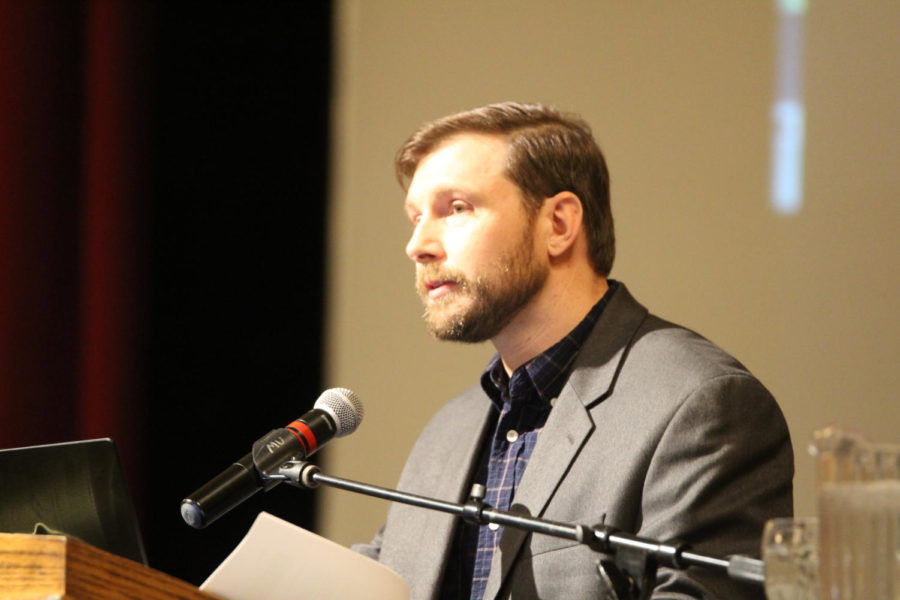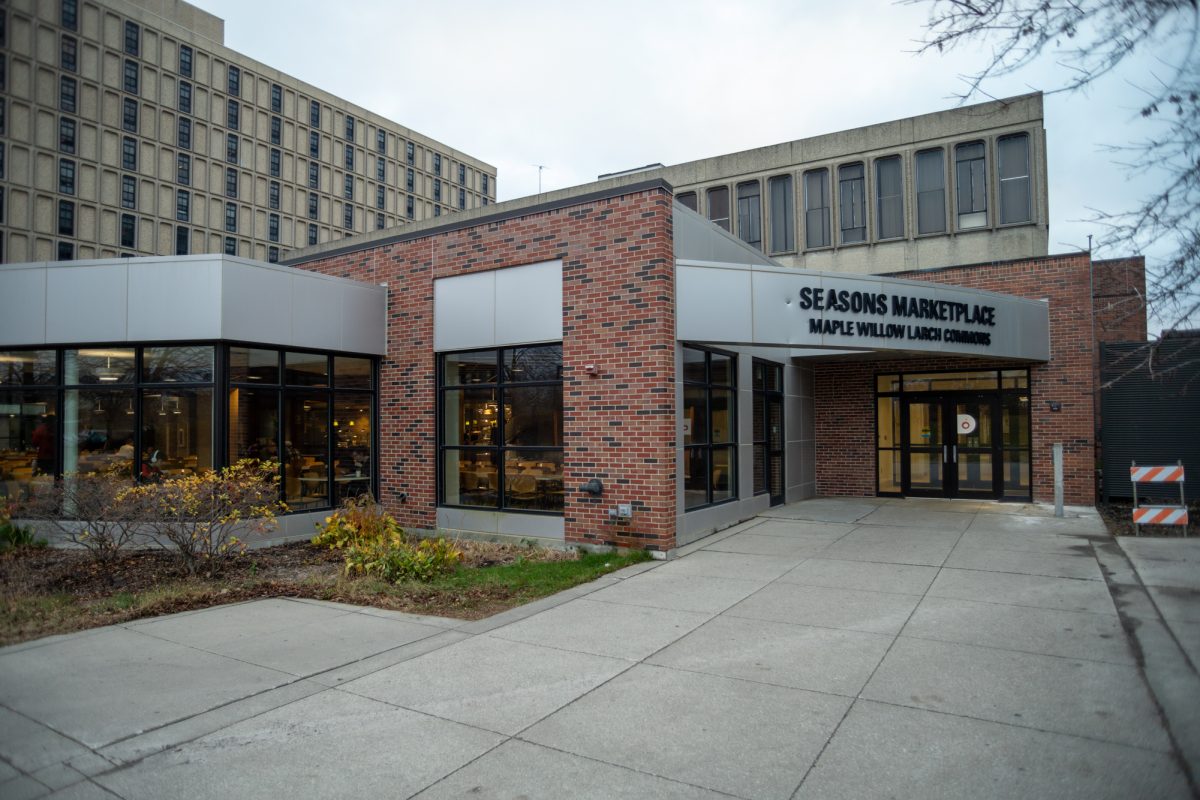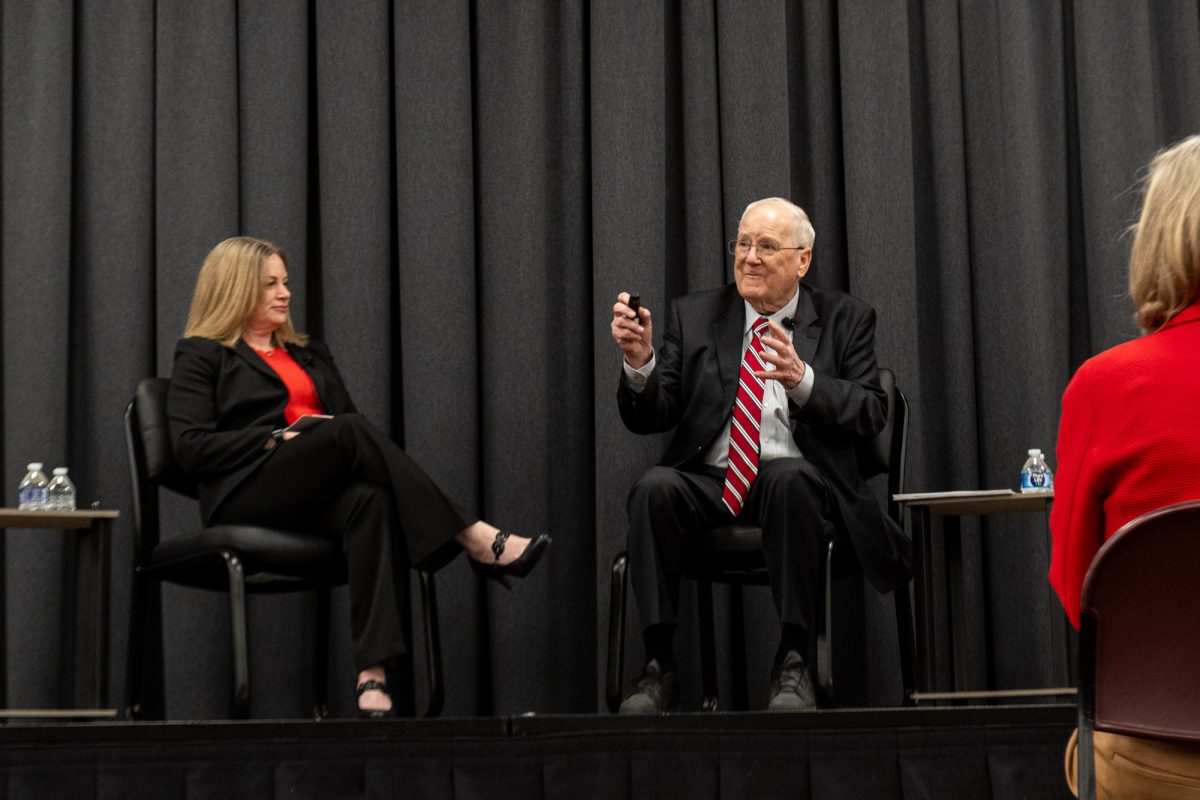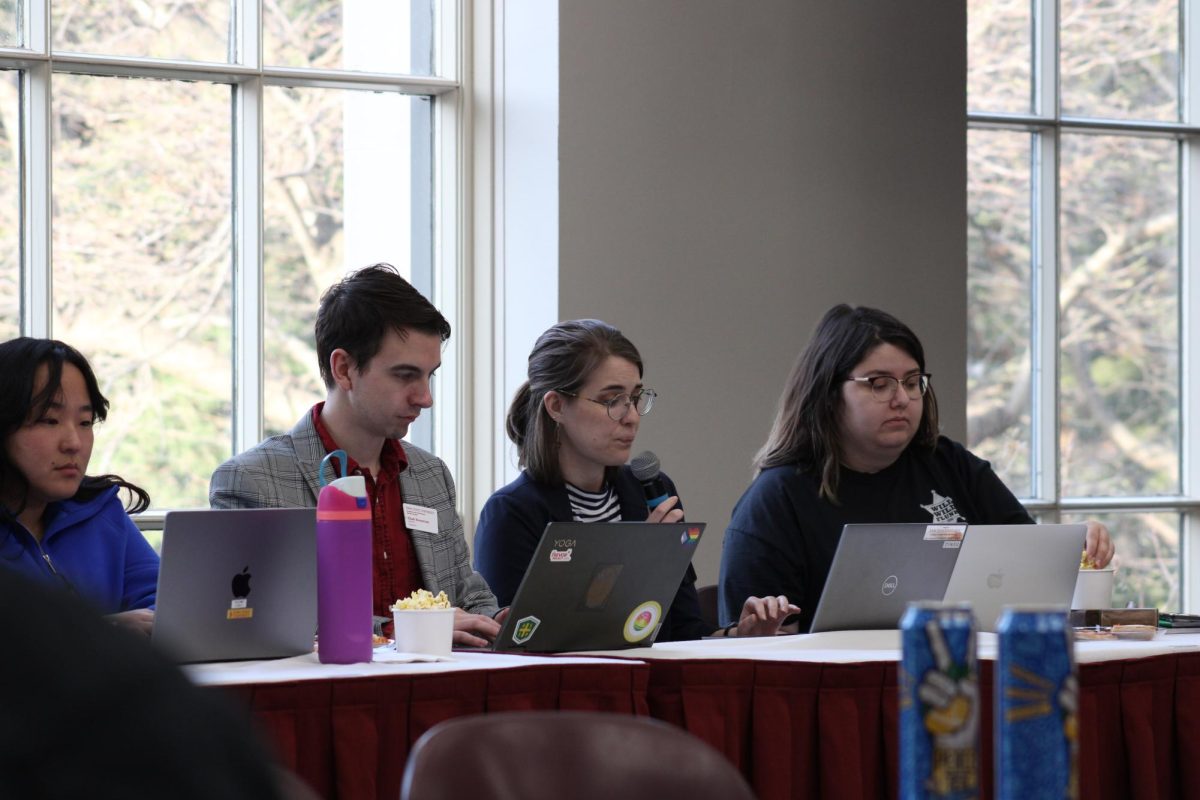A Q & A with the Thoughtful Coal Miner
Nick Mullin says that if coal miners in rural Appalachia could leave their jobs, they would – however they need to provide for their families, and there isn’t better money in these working class areas. Mullin was a fifth generation miner, and is now an environmental activist and Monday night’s keynote speaker for the 2018 Sustainability Symposium.
February 20, 2018
Nick Mullins is a former coal miner from the Appalachia region who is working to bridge a gap between those working in the coal mines and environmentalists.
Mullins came to Iowa State to deliver a keynote lecture Monday, titled “The Thoughtful Coal Miner” as a part of the 2018 Symposium on Sustainability.
After Mullins left his job as a coal miner, he began his blog, The Thoughtful Coal Miner, in 2010. Via this blog and writing for other publications, Mullins has been a voice “for coal miners everywhere, each of whom have taken time to understand the bigger picture, and who seek justice for their communities.”
Mullins’ blog is a space for him, and sometimes contributors, to post about issues relating to coal minors and the relationship with environmental issues and other topics relating to the culture in Appalachia.
The Daily had an opportunity to sit down with Mullins and ask a few questions that explored beyond the topics he touched on at his lecture Monday in his keynote for the 2018 Symposium on Sustainability.
Q: What inspired you to begin blogging?
Mullins: I had recently left the mines, and I’d always enjoyed writing. After leaving the mines, I got more involved in environmental activism, and some folks suggested that I start a blog. I thought it would be a good idea and get a voice out there that wasn’t often heard.
Q: Did you have writing experience before starting your blog?
Mullins: Nothing professional, I had on a couple of occasions written an op-ed for the local newspaper. In high school I enjoyed writing fiction stories and things like that, but I hadn’t really gotten into the political spectrum of things. I had just enjoyed crafting up emails and causing debates.
Q: Were you surprised by the impact your blog had after you started it?
Mullins: There were a lot of times I was surprised by the readership and how popular it became. But I also, in later years, realized that the audience that really picked up on it was mostly the environmental, liberal side of things. And while I was feeding a lot of the perceptions they had of Appalachia, I also realized that I wasn’t getting out to as wide of a genre of audience that I’d like. I also noticed that the more controversial I became about environmental activism, the more heat I took and I had more peaks in readership.
Q: Did you try to reach a larger scope of audience, speak to the other side?
Mullins: I did. I was trying to communicate with both environmentalists and miners at the same time, speak to both of the issues and become a bridge across. There were times I spoke to miners specifically, hoping they would rethink the coal industry as it came through the coal rhetoric, and there were times I would speak to environmental activists. I often found that even though I was trying to speak to coal miners, I would attract more environmental activists. But I never got a heck of a lot of coal miners reading, and I realized that a lot of that had to do with access to internet and people’s availability to devote time to reading. The coal industry does a lot of work to keep people tired and unable to do much except relax when they’re home.
Q: In Iowa, what do you believe is the relevance of the conversation about the relationship between coal mining and the environment?
Mullins: The jobs versus environment dichotomy is very intense in Appalachia, but it spreads out to any community, especially rural communities, where that has an issue. People are always trying to find ways to sustain themselves economically. At the same time, there’s issues that come up with the environmental impacts of those jobs. From a perspective in Iowa, I’m sure there is a bit of a jobs versus environment dichotomy that occurs around farming, industrial agriculture and environmental issues, so where do we find middle ground? It also is largely based on a rural-urban divide, which does seem to have a profound impact between the people that provide a lot of the things that urban people need, but also aren’t very well understood by urban people.
Q: What message do you hope people take away from your lecture Monday night?
Mullins: That right now we are so intensely divided as a nation, it feels, and there is such a cultural war going on with rural versus urban, and people on both sides have got to start rethinking the way that we’re doing things. People in liberal and progressive areas need to really rethink about how they approach issues and approach people of the working class, in order to be able to no longer speak to, but speak with in terms of what we do. And we need to start listening to people in rural and working class communities.






